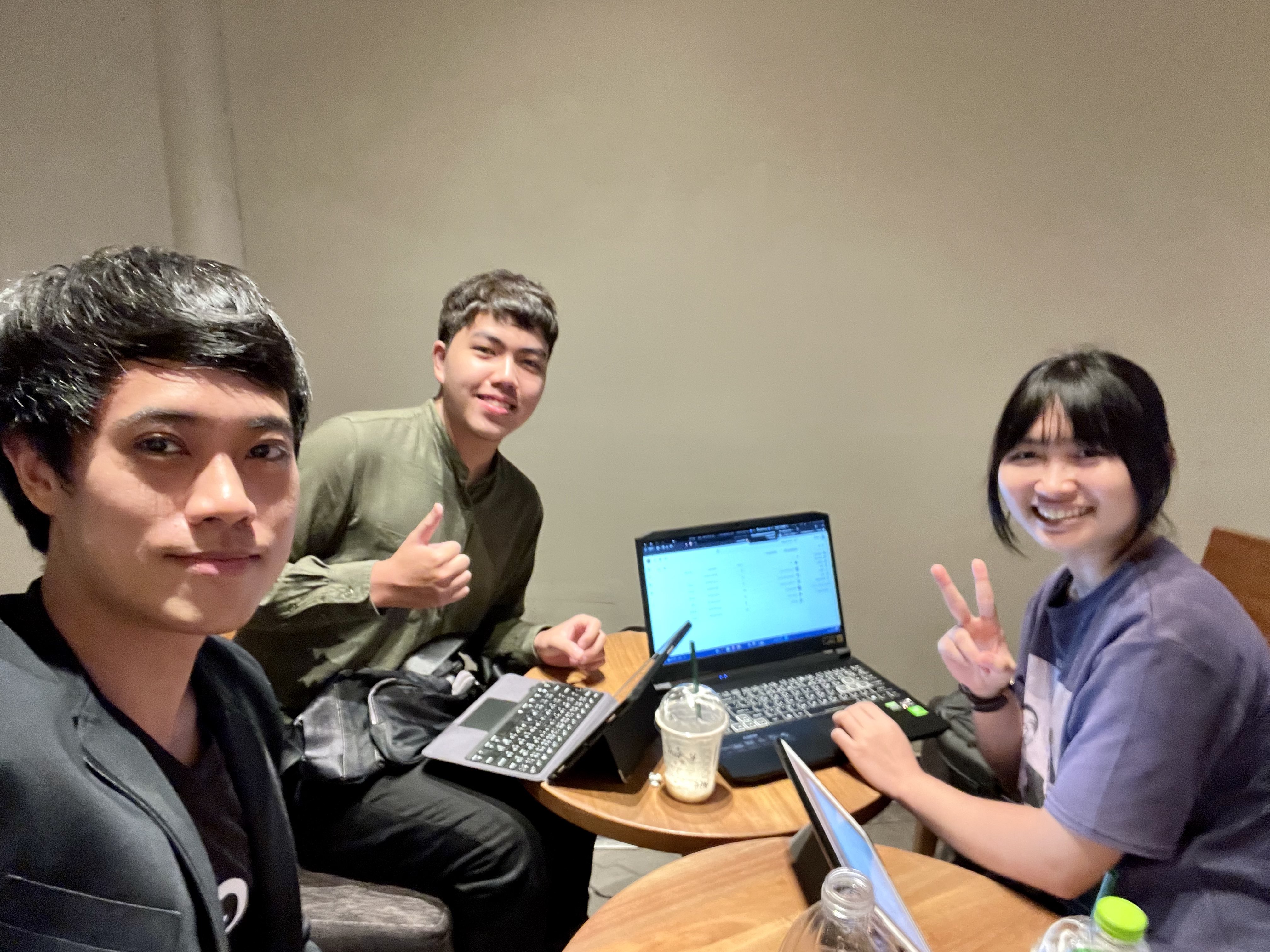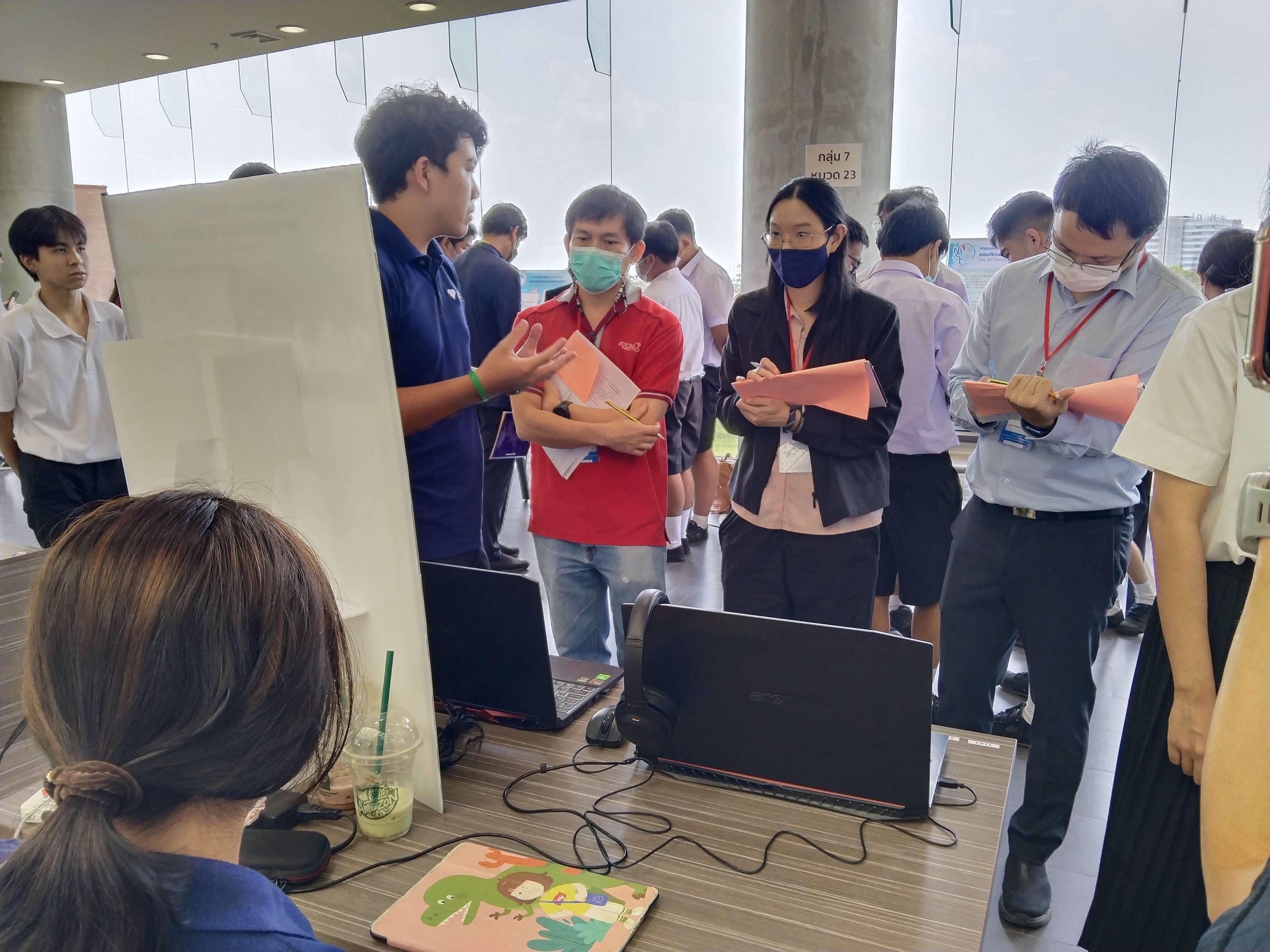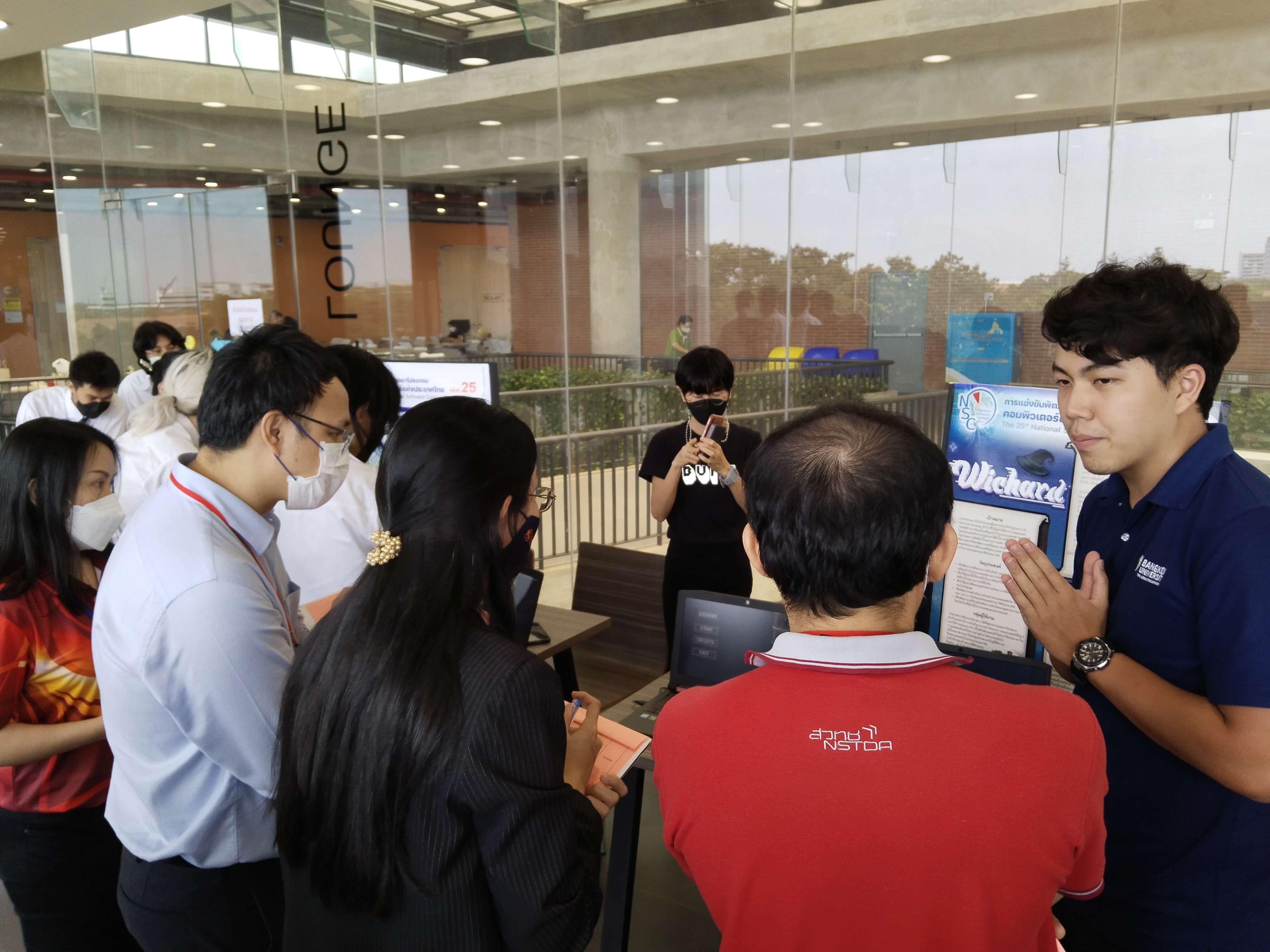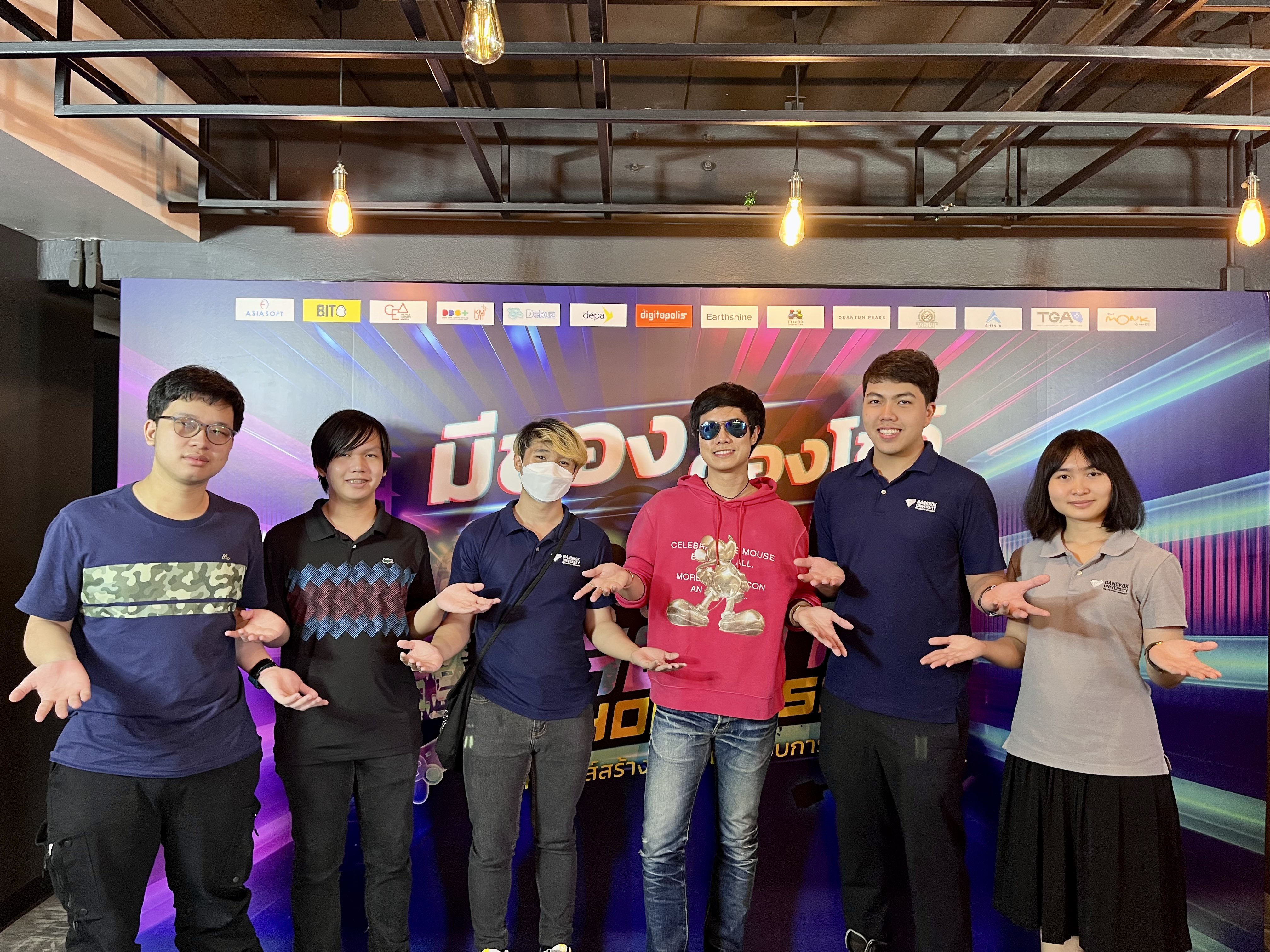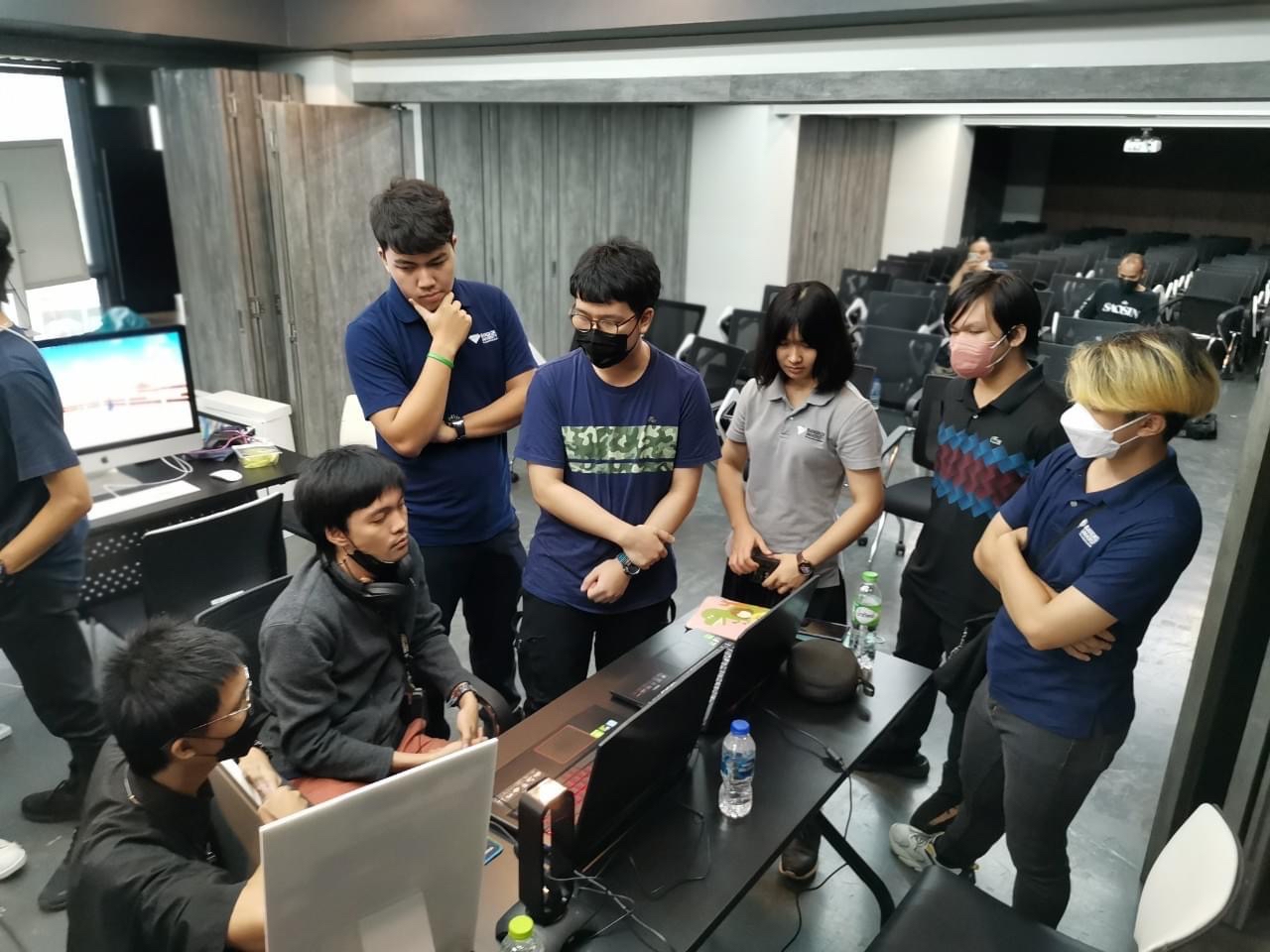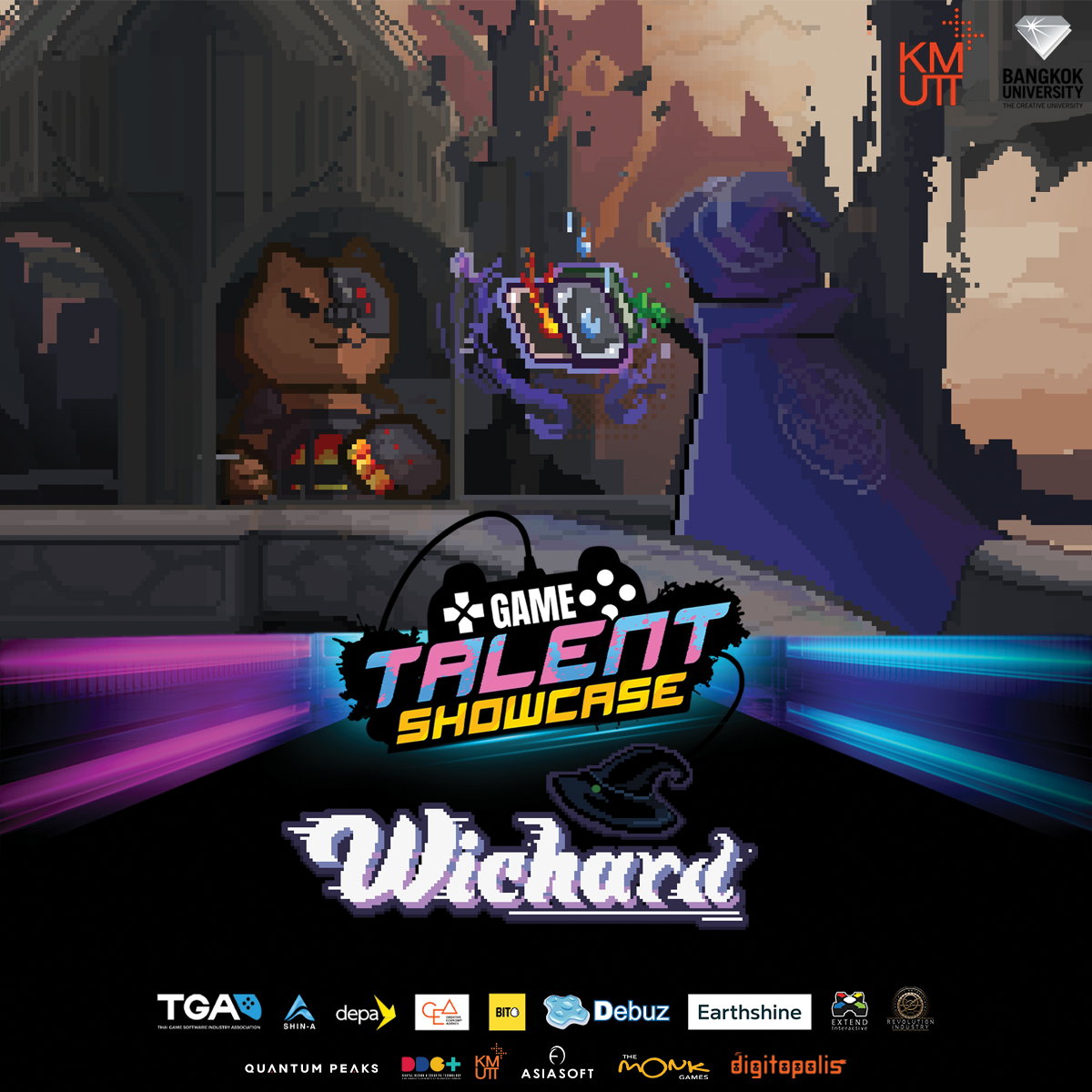Wichard
My Role
Programmer / Producer
Team
Xodic Studio (Team of 5-7)
Duration
6 months
Completed
December 2023
Project Overview
Wichard is a real-time strategy card game developed by Xodic Studio where players control "Merlin", a wizard who got lost by his own teleportation magic in a new world. The gameplay focuses on resource management, where small decisions can make a significant difference. Players must defeat enemies to reclaim lost power. This prototype version demonstrates the core mechanics of drag-and-click gameplay with stylish pixel art visuals. I worked as part of a diverse team to create this unique card-based RTS experience.
Overview
"Wichard" is a 2D deck-building real-time strategy (RTS) game set in a captivating world that blends magic and futuristic technology. Players take on the role of Merlin, a character teleported into a mysterious tower, tasked with escaping by defeating enemies using a strategic combination of action and elemental magic cards. Built in Unity with a pixel art aesthetic, the game offers a fresh take on the deck-building genre.
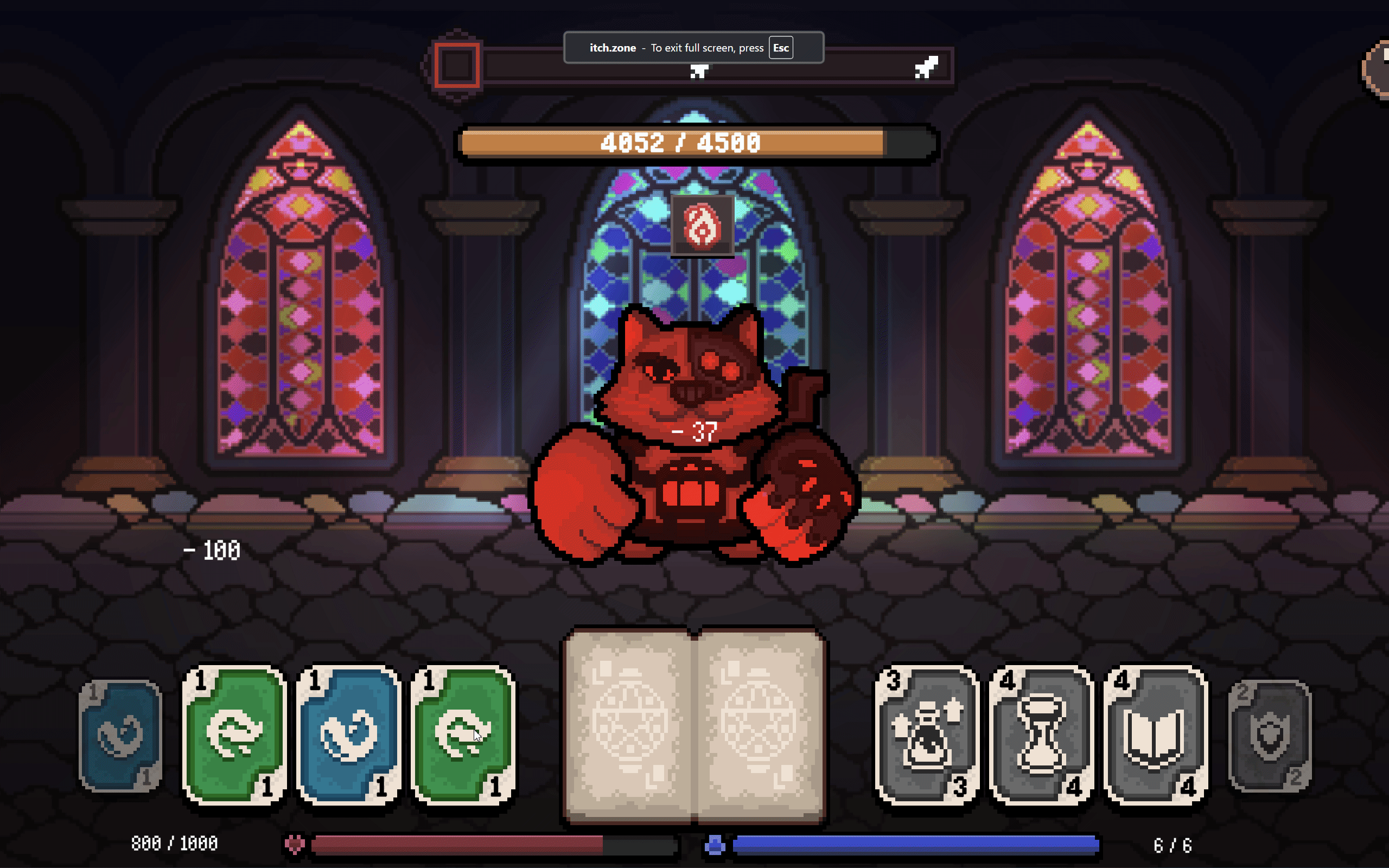
Role: Programmer / Producer
- Developed and implemented core gameplay systems, including the card combination and combat mechanics.
- Designed and balanced the elemental system and card effects to enhance strategic depth.
- Collaborated with artists and team members to integrate gameplay with the game's visual and narrative elements.
- Served as project manager, coordinating team efforts and assigning tasks to ensure timely delivery.
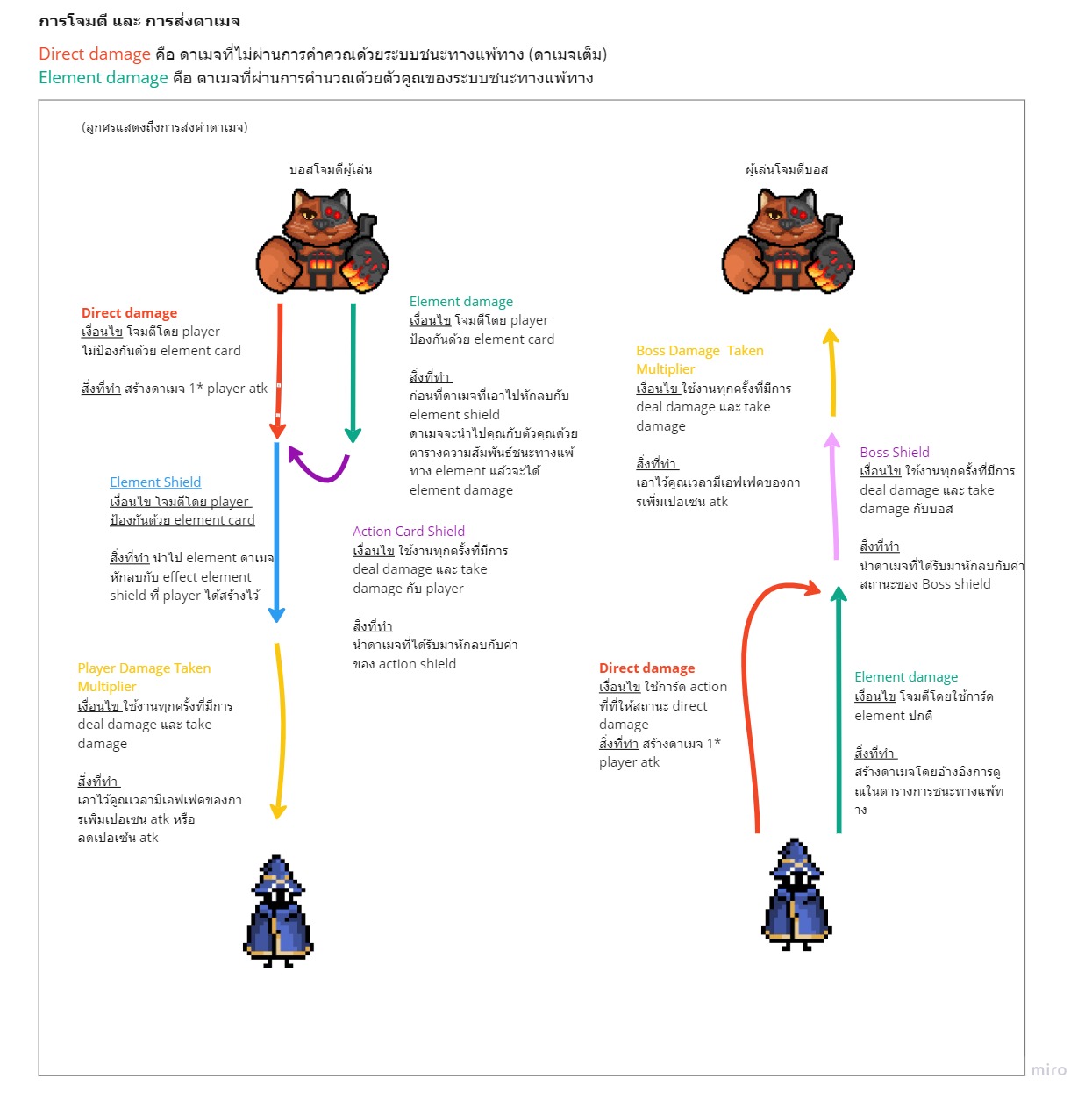
Key Contributions
- Card Combination System: Programmed a dynamic system in C# allowing players to merge elemental and action cards, creating varied and creative effects (e.g., combining "Fire" with "Water" for amplified damage). Addressed bugs like cards disappearing after use, improving reliability.
- Combat Mechanics: Built an engaging and balanced combat system, emphasizing real-time strategy and player decision-making. Adjusted mechanics based on feedback to reduce frustration with card combinations.
- Card Selection & Balancing: Designed and implemented a diverse card pool with balanced elemental interactions, adjusting card effects and mana costs based on in-game testing to ensure strategic depth without overpowered combinations.
- Gameplay Refinement: Continuously iterated on core mechanics based on playtesting feedback, improving card readability, effect clarity, and combat pacing to create a more intuitive and engaging player experience.
- Project Management: Assigned tasks based on team members' strengths, and conducted regular progress reviews to keep development on track despite resource constraints.
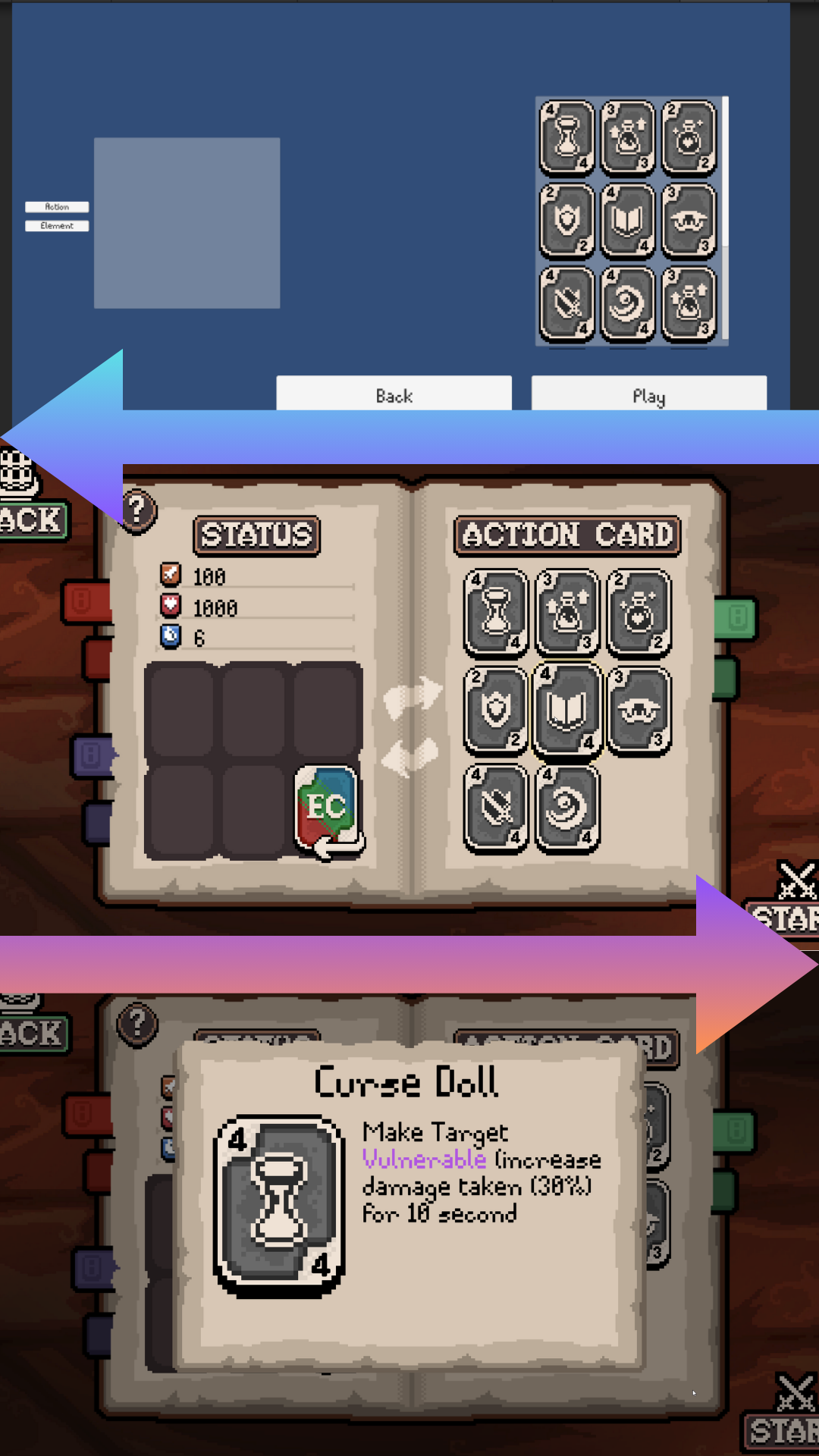
Achievements
- Showcased the game at Game Talent Showcase Batch 2 and National Software Contest, receiving positive feedback on our concept and mechanics.
- Developed an MVP (Minimum Viable Product) that effectively demonstrated the core card combination system and gameplay loop.
- Resolved critical bugs (e.g., HP UI glitches, mouse click stacking issues) to improve playability for contest demonstrations.
- Successfully managed a fluctuating team size, adapting project scope and task distribution to maintain progress toward deadlines.
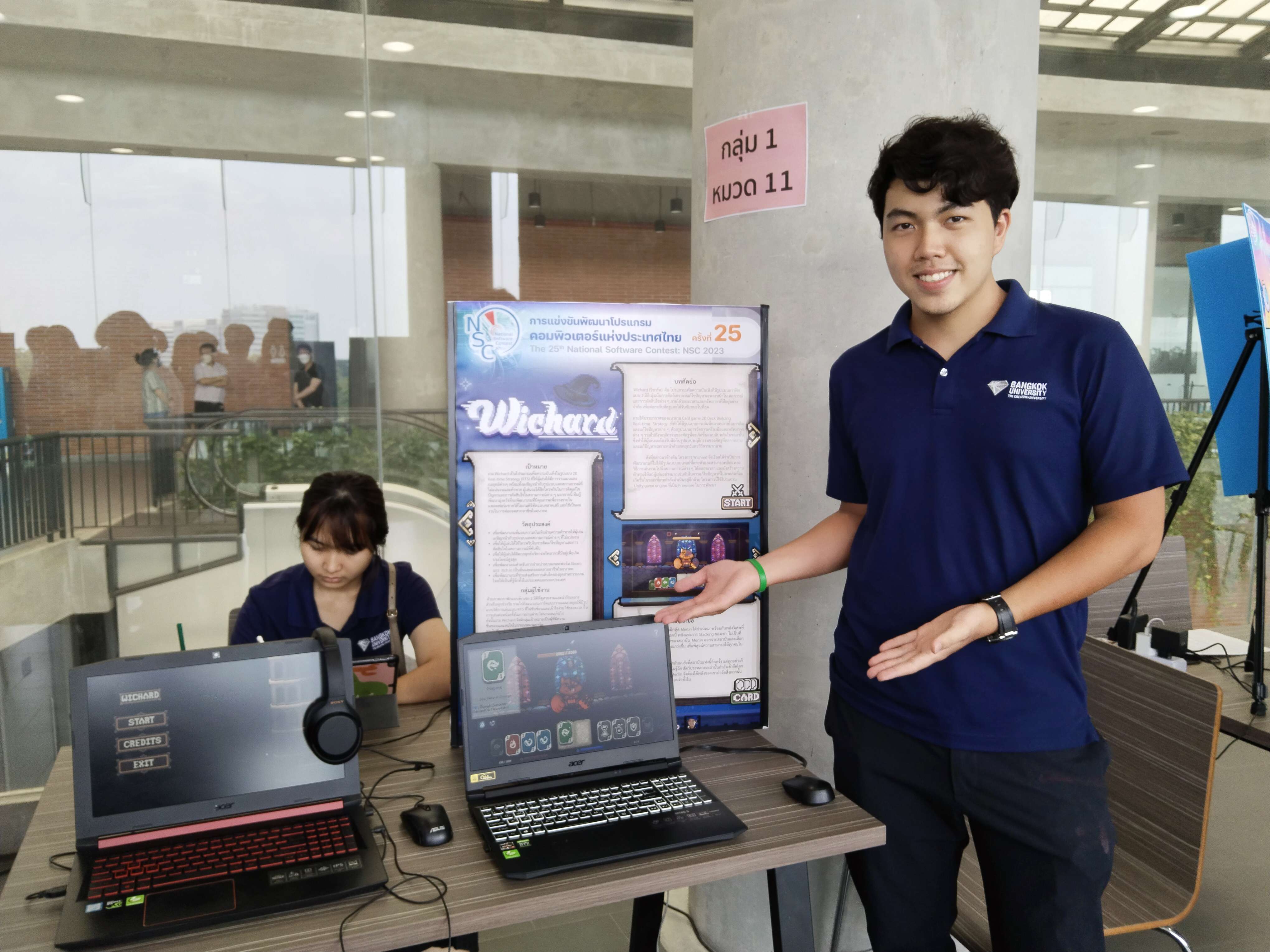
Skills Demonstrated
- Programming: Expertise in Unity and C# for gameplay systems, and bug fixing.
- Game Design: Crafted and iterated on mechanics, balancing complexity with accessibility using player feedback.
- Problem-Solving: Applied Agile management techniques to adapt to frequent team composition changes throughout the project duration.
- Collaboration: Partnered with artists and designers to align gameplay with pixel art visuals and sound design.
- Project Management: Utilized task tracking tools to prioritize features, allocate resources efficiently, and maintain development momentum.
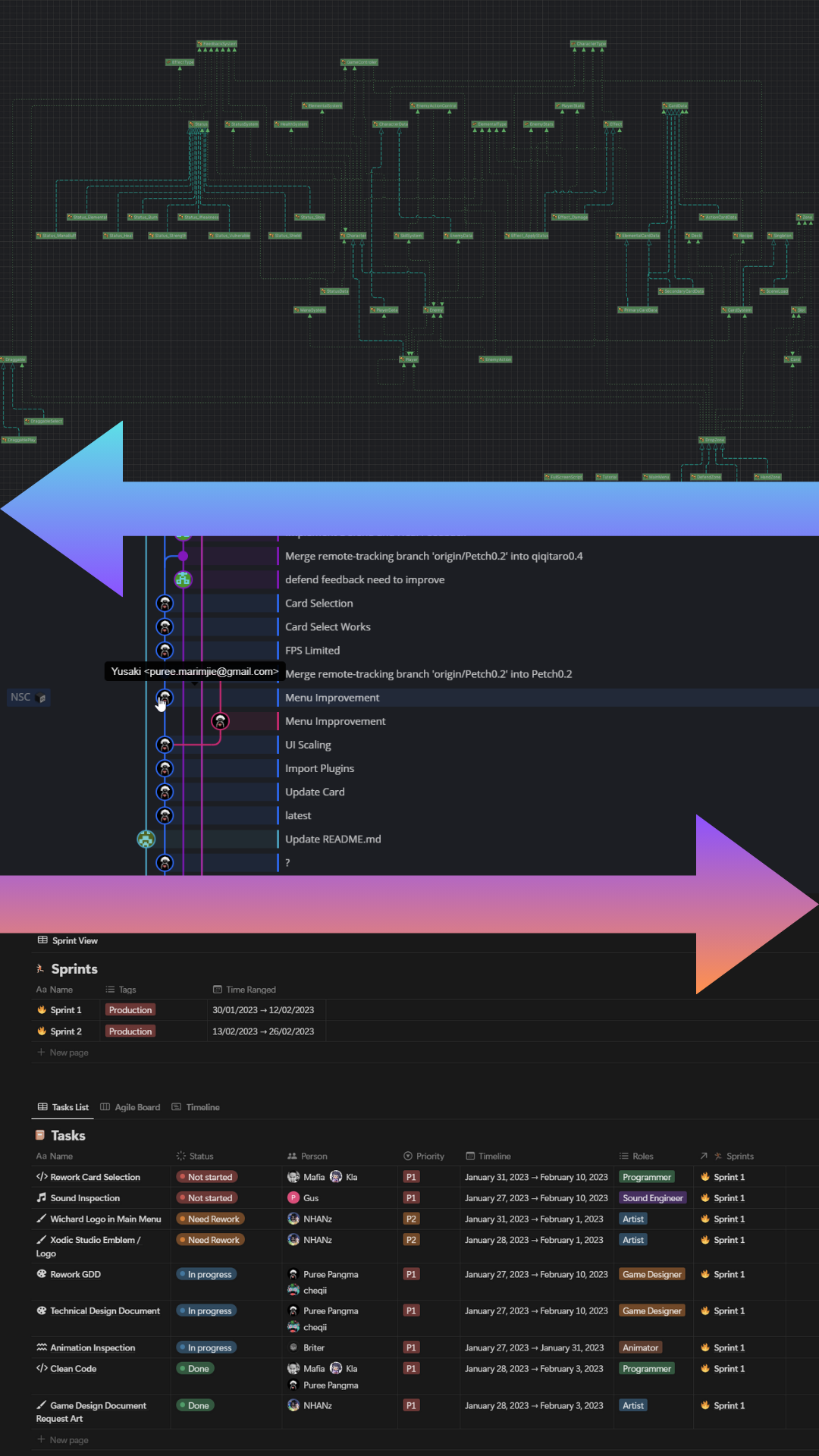
Reflection
Working on "Wichard" sharpened my ability to blend programming precision with creative game design while developing my project management skills. The card combination system presented unique technical challenges that required innovative solutions, particularly in handling the real-time interactions between different card types. Tackling player feedback—such as adding clearer card effect indicators and improving UX taught me the value of iteration in game development. Managing a team with varying availability challenged me to become more adaptable in planning and task assignment, a skill that proved invaluable when preparing for showcases and competitions. This project reinforced my passion for creating engaging, strategic gameplay experiences, and I look forward to applying these technical and leadership lessons to future game development projects.
Gallery
